
Sunday with Eden | Aug 22,2020
A few months ago, Meklit Desalegn was hosting a guest from Dubai. Her guest stayed at her house for a few weeks and when his return date drew close, he took a test for COVID-19 to comply with travel requirements. Though he had shown no symptoms, he tested positive, adding to the long list of 224,000 people who have contracted the virus across the country up until last week.
He was later admitted to Bethzatha Hospital, one of the seven private health centres permitted by health authorities to treat patients with COVID-19, where he stayed for several weeks.
For the 29-year old clothing shop owner who lives with her son in the CMC area, the news came as a complete shock. Meklit had been cautious about taking the recommended preventive measures the authorities hammered in their messaging: keep your physical distance, regularly sanitise or wash hands, and wear masks in the presence of others.
"I was scared for my son," said Meklit.
Her three-year-old son began showing flu-like symptoms soon afterward.
"I couldn't sleep for two days," she told Fortune.
Thankfully, he tested negative, one of the over two million people found to not have the virus upon testing over the last year. But, Meklit knew that there was still a chance of catching the virus unless the house was disinfected and sanitised.
An emerging group of companies provides door-to-door services in cleaning and disinfecting homes, offices and shops.
Disinfection service providers report that their client base has shifted lately; less from public and private offices and more from households.
"It was such a relief," said Meklit.
Although the company that served Meklit has since gone out of business, several others are currently providing sanitisation services in Addis Abeba. As the public was gripped by fear of the sudden spike in numbers of the sick and dead due to COVID-19, a new line of businesses cropped up, frantic to fill the demand. From processing plants converting their lines to beef up the production of sanitiser gels to private testing centres expanding with tents outside their premises and companies going around spraying disinfectant chemicals upon request.
One of these is Spotless Cleaning Services, established in November 2019. Not initially included in the items of services the company offered, Spotless started offering disinfection in early 2020, right around the time the virus was first detected in Ethiopia.
The company’s clientele is mostly private firms and offices though occasionally requests come from residences. Spotless charges between 10 Br and 15 Br to disinfect a square metre of space, and has sanitised dozens of sites to date.
One of Spotless' clients who wanted to disinfect her home was first introduced to the service through Instagram. Her grandmother tested positive and was admitted to Silk Road Hospital in November last year; she was determined to protect her father and grandfather, who are both above the age of 80 and reside with her.
"People seem to be neglecting prevention,” she told Fortune. “But it needs as much attention."
Though the pandemic created new opportunities in terms of disinfection work, it also took a toll on the company's regular cleaning services.
"The outbreak affected us like any other business," said Abel Solomon, the company's founder and general manager. "Customers were not willing to have cleaning crews come into their homes or offices out of fear of the virus. Some members of staff also had their reservations about visiting clients.”
Demand from the market remains precarious, compelling some of the early entrants to close shop. Spotless, however, is still in business, recently winning a grant for capacity-building from the British Council to provide its services free-of-charge to institutions such as orphanages and homes for the elderly.
The demand for disinfection has not been as robust as the earlier days of the virus surfacing in Ethiopia, according to Ermias Eshetu, team head at Ethio Airs, another company that provides disinfection and fumigation services in the capital.
Government institutions such as the Ministry of Health and the Addis Abeba City Mayor's Office, as well as hotels such as Harmony and Nexus, were some of Ethio Airs clients. Though the company charges per square metre, its managers ask for a minimum of 3,000 Br to take orders.
"I see reluctance on the side of both the government and the people when it comes to the fundamentality of prevention," Ermiyas told Fortune.
Nonetheless, Ermiyas has noted a shift in where the orders are coming from lately; less from public and private offices and more from households such as Meklit's.
"Most calls we receive from households come after a family member has been infected with or has passed away from COVID-19," said Ermiyas.
He attributes the shift to the authorities' encouragement of at-home treatment. Ethio Airs uses chemicals like hydrogen peroxide for outdoor cleaning and mostly fumigation disinfection for indoor services because the liquid chemicals might cause damage to electronic devices and furniture.
Spotless sources the detergents and sanitising chemicals from Cleanall Industries Plc, a manufacturing company that was established in 2016 and goes by the brand name Dolce.
Ammanuel Eyob, production manager of Cleanall Industries, has seen the demand for detergents and cleaning supplies, particularly from restaurants and hotels, skyrocket once COVID-19 hit the country. Cleanall began producing Sanitex, a range of sprayable chemicals for disinfection service providers. Cleaning and disinfection service providers ordered up to 3,000 litres of disinfectant chemicals at a time during the early days of the pandemic. But the demand is slowing, according to Ammanuel.
Despite a shortage of raw materials on the market, Ammanuel cited that Cleanall's stock of chemicals is sufficient to meet demand and it is only struggling with a lack of plastic sprayer handles.
Clients who seek the services of the cleaning companies should know what they are bargaining for, according to experts in the chemical industry. A biomedical engineer and General Manager of Chemed Scientific Plc, Gemechu Sorsa, is one of these experts with doubts over the effectiveness of the chemicals used by cleaning service providers. Some companies use bleach or chlorine, which might not be effective for extended periods because they only deoxidise the virus.
"This does not nullify the threat of reinfection from fragments of the virus,” Gemechu told Fortune. "The only effective disinfectants are organic or inorganic alcohols like ethanol."
Alcohol extracted from substances such as ethanol can dissolve the protein-covered COVID-19, thus shorten its lifespan.
Regulators should compel cleaning service providers to notify their clients about the side effects of the chemicals they use, according to Gemechu. Some of them may cause headaches, dizziness, nausea, skin irritation and respiratory distress. Regardless, Gemechu urges that disinfection, along with other preventive measures such as social distancing and wearing face masks, is key to preventing the further spread of COVID-19.
Needless to say, the virus is not showing any sign of respite. Over 1,244 new cases were recorded on April 28, 2021, bringing the total to more than a quarter of a million, a figure which signals that trying days are ahead.
PUBLISHED ON
Apr 30,2021 [ VOL
22 , NO
1096]

Sunday with Eden | Aug 22,2020

Covid-19 | Aug 08,2020
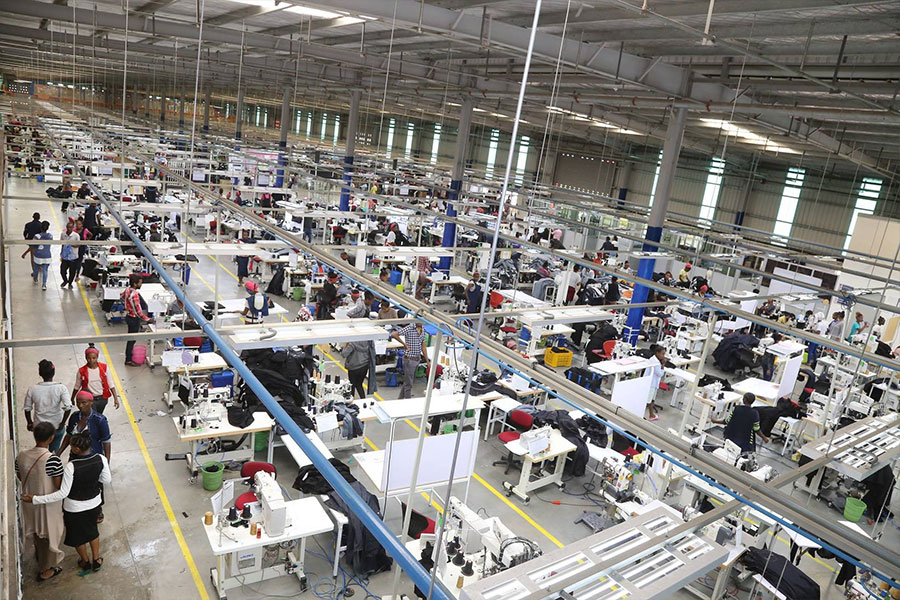
Fortune News | Sep 18,2021

Radar | Aug 29,2020

Viewpoints | Apr 28,2024
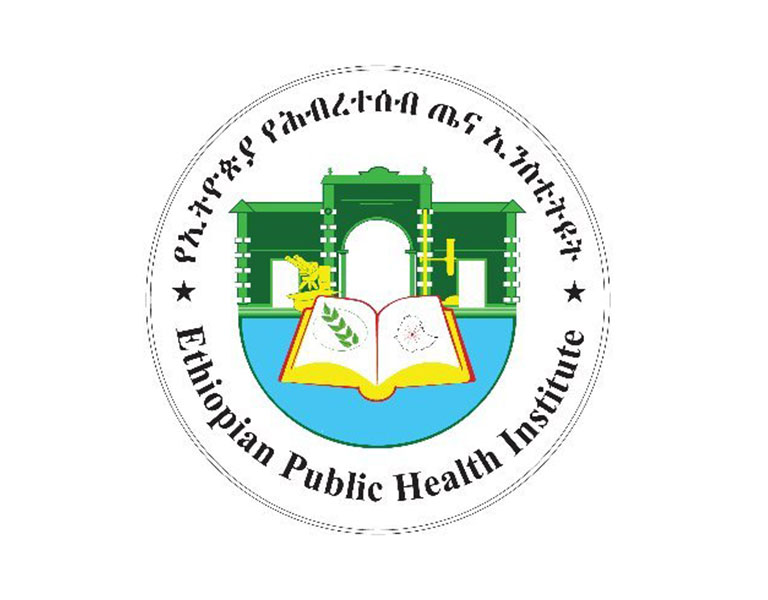
Radar | Jan 01,2022

Fortune News | Apr 19,2025
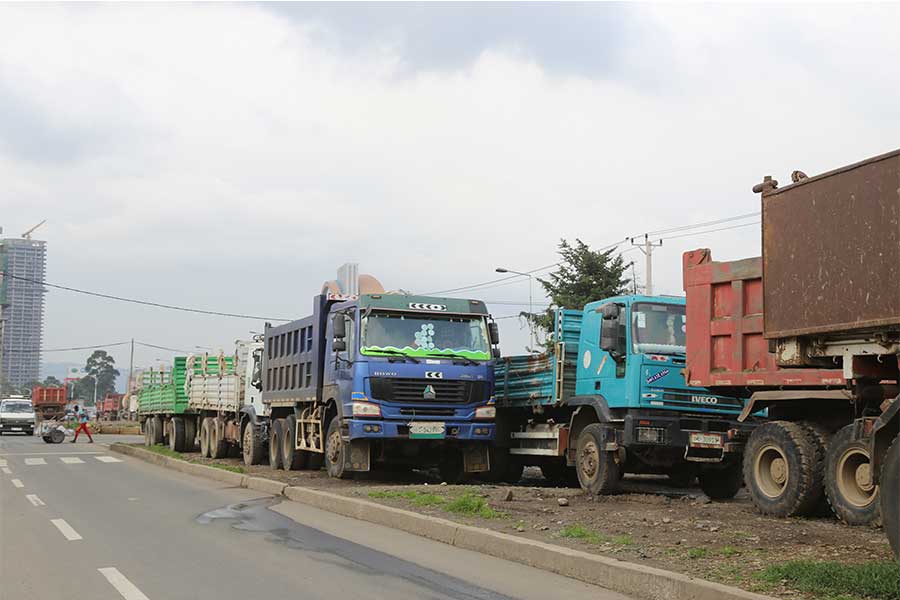
Agenda | Jul 20,2019

Radar | Dec 26,2020

Commentaries | Aug 01,2020

Dec 22 , 2024 . By TIZITA SHEWAFERAW
Charged with transforming colossal state-owned enterprises into modern and competitiv...

Aug 18 , 2024 . By AKSAH ITALO
Although predictable Yonas Zerihun's job in the ride-hailing service is not immune to...

Jul 28 , 2024 . By TIZITA SHEWAFERAW
Unhabitual, perhaps too many, Samuel Gebreyohannes, 38, used to occasionally enjoy a couple of beers at breakfast. However, he recently swit...

Jul 13 , 2024 . By AKSAH ITALO
Investors who rely on tractors, trucks, and field vehicles for commuting, transporting commodities, and f...

Aug 23 , 2025
Banks have a new obsession. After decades chasing deposits and, more recently, digita...

Aug 16 , 2025
A decade ago, a case in the United States (US) jolted Wall Street. An ambulance opera...
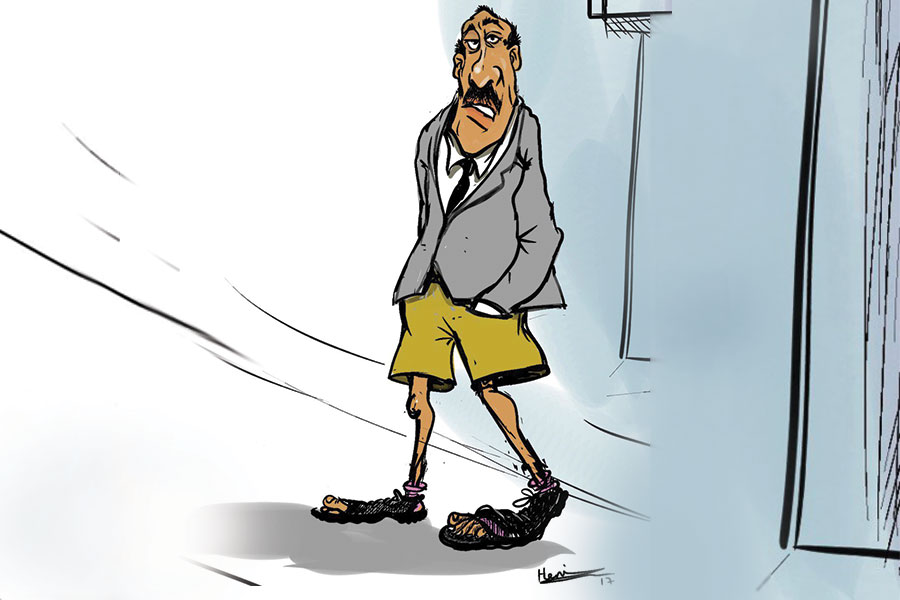
Aug 9 , 2025
In the 14th Century, the Egyptian scholar Ibn Khaldun drew a neat curve in the sand....
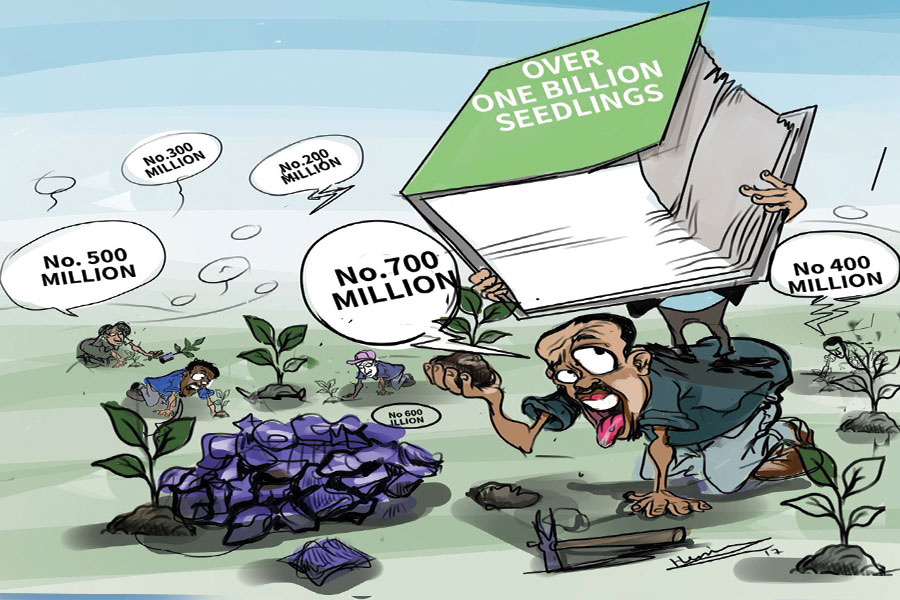
Aug 2 , 2025
At daybreak on Thursday last week, July 31, 2025, hundreds of thousands of Ethiop...